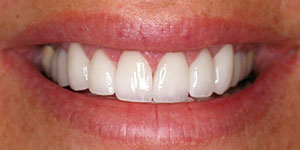
Veneers are a popular choice when it comes to cosmetic dental procedures. Despite their many benefits, patients often have questions about their effectiveness and longevity before undergoing the treatment. That’s why our Fort Lauderdale veneer experts are here today to answer some of the most commonly asked questions about veneers to help you make an informed decision during your dental consultation.
Which is Better – Veneers or Composite Bonding?
According to our Fort Lauderdale veneer specialists, the choice between veneers and composite bonding largely depends on the nature of your dental issues. Here are a few points to consider:
Veneers: These are typically recommended for patients with severely chipped, crooked, stained, or damaged teeth.
Composite Bonding: This is a plastic filling material used to subtly improve the appearance of teeth that have suffered mild damage or require minor repairs.
Are Porcelain Veneers Reversible?
The short answer is no. The application of veneers involves the reduction of the tooth’s surface by approximately 0.5 mm. Due to this alteration, veneers are not considered a reversible treatment by dental professionals.
How Long do Veneers Last?
Naturally, the next question pertains to the lifespan of veneers, especially since the treatment is permanent. Our veneer experts in Fort Lauderdale FL report that with proper care, veneers can last at least a decade without any significant issues. Some patients maintain that with regular dental visits and diligent oral hygiene, their veneers have lasted far beyond ten years.
How Can Fort Lauderdale’s Veneer Professionals Help with Maintenance?
Veneers are constructed from durable material designed to withstand normal wear and tear. However, issues may arise when gum recession exposes the roots of teeth, potentially necessitating new veneers.
As for maintaining your veneers, our Fort Lauderdale veneer specialists recommend the following:
- Brushing twice daily for two minutes each session;
- Flossing daily, especially after meals;
- Wearing a bite guard at night to prolong the life of your veneers;
- Using an electric toothbrush with a soft or medium head;
- Adhering to an annual dental care routine, including two dental office visits per year. During these visits, consider a teeth cleaning treatment;
- Avoid using veneers, particularly those on your front teeth, to crack hard shells, chew nuts, open bottles, etc.
If you feel something is off with your veneers, seek immediate medical advice.
Do Veneers Increase Susceptibility to Cavities?
 Interestingly, after you’ve had veneers fitted, your likelihood of developing cavities decreases. This is because veneers adhere to the teeth and offer an additional layer of protection. Our Fort Lauderdale veneer experts report no significant increase in tooth decay following veneer applications. However, it’s essential to maintain good oral hygiene and take care of natural teeth that don’t have veneers to prevent decay. Coupled with a balanced diet and thorough dental care, you can confidently keep decay concerns at bay.
Interestingly, after you’ve had veneers fitted, your likelihood of developing cavities decreases. This is because veneers adhere to the teeth and offer an additional layer of protection. Our Fort Lauderdale veneer experts report no significant increase in tooth decay following veneer applications. However, it’s essential to maintain good oral hygiene and take care of natural teeth that don’t have veneers to prevent decay. Coupled with a balanced diet and thorough dental care, you can confidently keep decay concerns at bay.
Should you have further inquiries about veneers or any other dental treatments, feel free to contact our Fort Lauderdale veneer department. We are more than happy to clarify any doubts or questions!
In addition to veneers, our team offers a variety of services, including Teeth Cleaning, Cosmetic Dentistry, Dental Implants, Invisalign, Crowns & Bridges, Partials & Dentures, Invisible Fillings, SureSmile, Teeth Whitening, Root Canals, Nightguards, and more. Contact us today to book your free consultation and learn more about our services
























